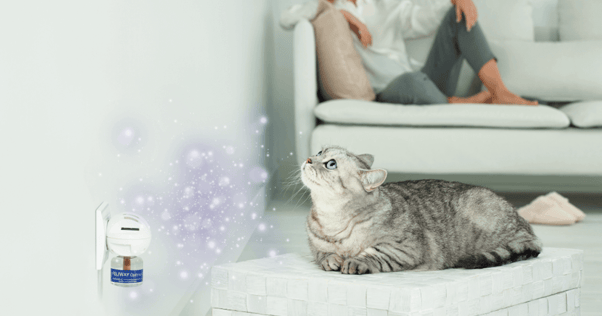Why Do Cats Shiver?
Cats are mysterious, enigmatic creatures, and their lifestyles can often be mystifying to us humans! Yet some of their behaviour can be surprisingly human-like too. Have you ever noticed your cat trembling – a behaviour that all humans go through from time to time – and wondered to yourself, “Why is my kitten shivering?” Is it because they’re cold, scared, or some other reason altogether? While these could all be potential causes, the answer is rarely so straightforward! Keep reading as we delve into the world of cat shivering symptoms and provide insights on how to help your cat in times of anxiety or discomfort.
Do Cats Shiver When They’re Cold?
As with humans, cats occasionally shiver or tremble as a sign of a cold temperature – though, before we get ahead of ourselves, it’s important to note this isn’t always the cause. Cat body language is wide and complex, and one behaviour can often have multiple meanings!

If a cat is cold, this could be because they’ve been caught out in the snow or very wet weather. In this situation, you’re best-off drying and warming your cat until they’re comfortable again. It’s also worth noting that older cats are more likely to feel the cold than younger cats. If you have an older cat, make sure their sleeping places are out of the way of any draughts, while you can also consider adding warmth with a heat-pad or covered hot water bottle. That said, if you’ve ever spent more than five seconds watching your cat, you’ll know how good they are at finding warm spots to lie down in! Follow their lead if they have a favourite spot as they’ll have chosen that place for a reason, and you can then help them to feel more cosy. On a last note, if you’re concerned your cat may have hypothermia, you should take your cat to the vet immediately.
Is Shivering A Sign Of Cat Fear?
Another reason why cats shiver may be that they are feeling upset or fearful in certain situations. For example, you may see your cat trembling during a car ride or journey. On the whole, this should be easy to differentiate from shivering associated with the cold because cat anxiety and fear will usually include other symptoms, such as dilated pupils or a swishing tail.
If your feline friend is showing signs of cat stress in the home, try and work out what might be causing the upset. This could be a change in the home that makes it no longer feel like a safe territory, such as the arrival of a new baby or even something simple as new furniture. Once you’ve identified the problem, you can take steps to minimise the impact and help your cat to cope better.

Of course, helping with cat anxiety symptoms is often easier said than done! But nor does it need to be difficult. We recommend plugging FELIWAY Optimum into the room in which your cat spends the most time. This works by emitting a calming pheromone into the air that is undetectable by humans but is great for alleviating signs of stress in cats. It’s as easy as that! Plug the diffuser in and your cat should steadily begin to feel comfortable again.
If you’re concerned your cat has any issues that are triggering signs of cat stress or anxiety, even if you don’t believe it’s a medical issue, you should speak with a vet. Cats are experts at hiding illness so there’s a possibility they may have been unwell for a while. A vet will be able to check for any issues and provide specialist advice. Similarly, a qualified animal behaviourist can help to pinpoint any issues affecting your cat and develop an individualized management plan to help them cope.

Do Cats Shiver When They’re In Pain?
Cats are skilled at hiding any signs of pain, and there’s a very good reason for this. In the wild, the last thing a cat wants to do is let any predators know they’re vulnerable! However, one way in which cats do show signs of pain is shaking. Other less visible signs can include a change in appetite, activity, and sleeping or grooming patterns. If you notice any of these signs, check your cat for obvious indicators of injury or parts of their body they are protecting or sensitive about, and take them to a vet as soon as possible.
Why Do Cats Shiver? Less Common Reasons For Shaking
Cat anxiety, cold, and pain are the most common causes for cats to tremble, but there are a few other potential causes too. If you’ve ruled out each of the reasons above, other potential issues could include:
- Low blood sugar levels (hypoglycemia) – This can occur if a cat hasn’t eaten for some time or if they have a digestive issue.
- Hyperthermia (fever) – Shaking can happen if your cat is fighting an infection.
- Contact with toxic substances – If your cat has encountered a toxic substance then they might be trembling, but you might also see them vomiting, having wobbly movement, or a lack of appetite.
- Seizures – Shaking, a loss of awareness of surroundings, and urinating or defecating can all be signs that your cat is suffering a seizure. This will be visibly different from a cat shivering due to cold or stress.
In all of the situations above, you should take your cat to the vet immediately. If left untended then these can rapidly develop into serious issues, but a vet will be best placed to prescribe any treatment plans or put remedial action into place.
Are you interested in learning more about why cats shiver, or looking for more tips on helping with cat anxiety symptoms? Get in touch and we’ll be happy to share all the advice we can! You can also stay informed with all the latest information about FELIWAY Optimum and all our products by signing up for our newsletter.
